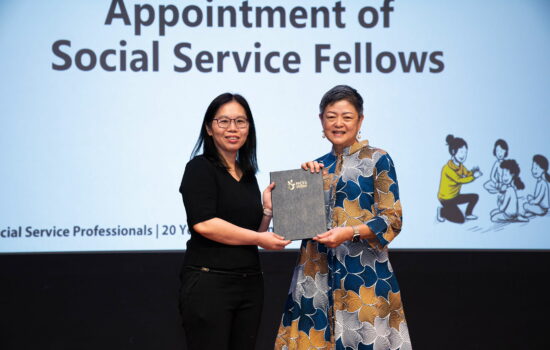Help For Pre-schoolers With Mild Learning Disabilities
From statistics, it is estimated that approximately 1,000 children in Singapore are diagnosed with developmental needs every year and another 2,000 children are suspected to have mild developmental delays related to speech and language difficulties, learning and literacy difficulties and behavioural issues.
Children with moderate to severe developmental delays have traditionally been supported through EIPIC Programmes mostly managed by special schools. However, those with milder special needs often fall through the cracks with no such support, diminishing their chances of accessing mainstream education.
The service gap was surfaced during the Enabling Masterplan 2007-2011 and SPD responded with early intervention support to meet the needs.
The belief that early intervention services at the child’s natural learning setting can help overcome learning challenges early in their lives so that they can integrate better in mainstream schools was also shared by the Ministry of Social and Family (MSF).
Recognising the efficacy of the programme namely PACES and later TOPPS run by SPD and a similar programme managed by KK Women’s and Children’s Hospital Child Development Unit, MSF rolled out the Development Support Programmme (DSP) on 10 May to support children with mild developmental delays attending mainstream childcare centres and kindergartens island-wide.
SPD is one of the three service partners appointed by MSF to run this early intervention programme in the Eastern and Western parts of Singapore.
Working closely on the ground has allowed us to understand the needs of the sector and our clients better. Identifying service gaps and meeting the needs of the community promptly will be a constant guidance for us in programme development, said Mr Abhimanyau Pal, executive director of SPD.
‘We are happy that the Government recognises the needs and importance of early intervention, and has placed their trust in SPD to deliver the service to the community,’ he added.
What is DSP?
DSP is a school-based early intervention programme targeted at children below 6 years old who are in mainstream pre-schools but has mild learning or developmental difficulties. Children who show signs of needing support are identified by the DSP’s trained learning support educators and the case is evaluated before an independent team of specialists at the KK Women’s and Children’s Hospital.
One of the main aims of DSP is to help the children become more confident and proactive learners, and equip them with the school-readiness skills that are necessary when they progress to primary school.
Since the programme started in May 2012, close to 300 children from 90 pre-schools have received support from the programme. MSF estimated that approximately 2,000 children will benefit from DSP every year when the programme is fully rolled-out. The Ministry will set aside $4 million for the programme annually to provide a smoother transition for these children when they enter mainstream schools.





